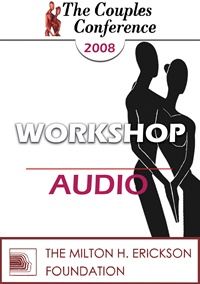CC08 Workshop 02 - Effects of Stress and Trauma on Relationships: Principles - Bessel van der Kolk, MD
- Average Rating:
- Not yet rated
- Topic Areas:
- Workshops | Trauma | Relationships | Couples Therapy | Neuroscience | Stress
- Categories:
- Couples Conference | Couples Conference 2008
- Faculty:
- Bessel van der Kolk, MD
- Duration:
- 1:38:39
- Format:
- Audio Only
- Original Program Date:
- Apr 25, 2008
- License:
- Never Expires.
Description
Description:
The majority of people who seek psychiatric care have histories of trauma, chaos or neglect. Advances in the neurosciences, attachment research and in information processing show how brain function is shaped by experience, and that life itself can continually transform perception and biology. Overwhelming experiences alter the capacity for selfregulation and memory processing due to changes in sub-cortical, i.e., “unconscious” levels of the brain. The memory imprints of the trauma(s) are held in bodily states and physical action patterns, which causes the entire human organism to automatically react to current experiences as a replay of the past. This workshop includes: Affective neuroscience for thoughtful clinicians; Introduction to the neurobiology of attachment, the nature of the threat response, attention, exploration and concentration, as well as lessons from neuro-managing and psychophysiology.
Educational Objectives:
- To describe how trauma shapes brain function.
- Given a client suffering from trauma, design a treatment using neuro-management.
*Sessions may be edited for content and to preserve confidentiality*
Credits
Faculty

Bessel van der Kolk, MD Related Seminars and Products
Bessel A. van der Kolk M.D. has been active as a clinician, researcher and teacher in the area of posttraumatic stress and related phenomena since the 1970s. His work integrates developmental, biological, psychodynamic and interpersonal aspects of the impact of trauma and its treatment. His book Psychological Trauma was the first integrative text on the subject, painting the far ranging impact of trauma on the entire person and the range of therapeutic issues which need to be addressed for recovery.
Reviews
Rating: Not yet rated


